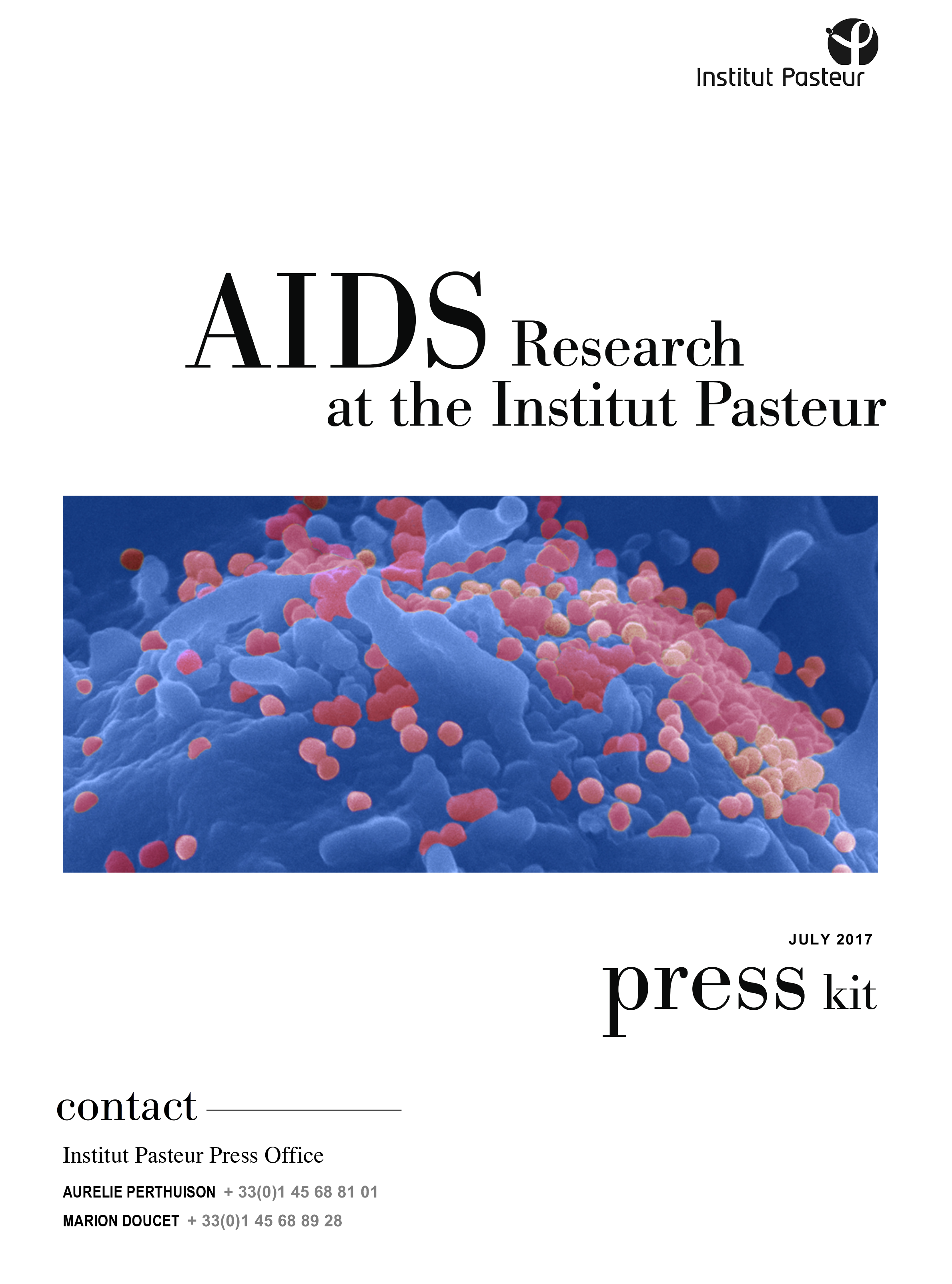
 News
News
AIDS: 34 years of progress and fresh hope – Focus on HIV/AIDS research at the Institut Pasteur
The 9th International AIDS Society Conference (IAS 2017) will take place in Paris from July 23 to 27, 2017, with many Institut Pasteur scientists contributing and participating. In the run-up to this event, the Institut Pasteur has compiled a brief review of its HIV/AIDS research over the past 34 years. Journalists, web users and all those interested in scientific progress in this field are welcome to browse the report in the Research Journal and the press kit, both specially designed to provide an overview of the current state of research in an area where scientists are constantly making new headway.
Having claimed the lives of close to 40 million people since HIV was discovered in 1983, AIDS is indeed a global health catastrophe. Significant progress has nevertheless been made over the last few years, particularly in developed countries, with longer life expectancy for patients on triple therapy. But this treatment does not eliminate the virus and must be taken for life. Research is therefore continuing to try and find curative treatments and/or a protective vaccine.
 Today, 34 years after Institut Pasteur scientists discovered HIV-1 – a breakthrough that was awarded the Nobel Prize in Medicine in 2008 – AIDS remains a major public health problem, affecting the poorest countries and people in particular: 37 million people live with HIV/AIDS in the world, half of whom do not have access to treatment, and there are over 2 million new cases every year.
Today, 34 years after Institut Pasteur scientists discovered HIV-1 – a breakthrough that was awarded the Nobel Prize in Medicine in 2008 – AIDS remains a major public health problem, affecting the poorest countries and people in particular: 37 million people live with HIV/AIDS in the world, half of whom do not have access to treatment, and there are over 2 million new cases every year.
In this context, HIV/AIDS research still constitutes one of the main objectives of the Institut Pasteur in Paris and the Institut Pasteur International Network, in countries particularly affected by the epidemic. The lines of research cover most of the current main fields of investigation. They concern studies on the development of the epidemic, HIV entry and multiplication mechanisms in human cells, virus transmission, pathophysiology of the infection, human immune response to the virus, natural protection in humans, the roll out of treatment in countries with limited resources, research into curing HIV infection, and of course vaccine candidates.
This work is being carried out in close partnership with the French National Agency for AIDS Research (ANRS), and in cooperation with the Institut Pasteur International Network, hospitals in France and national and international partner laboratories.